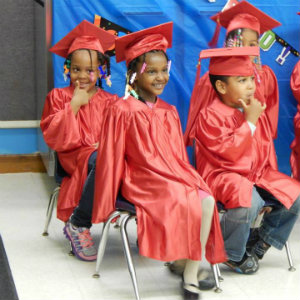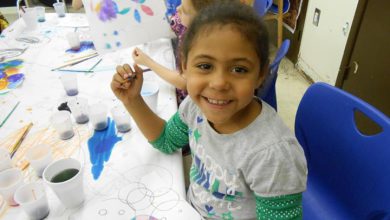Humor: Helping Preschoolers Learn

 Question: Why is six afraid of seven?
Question: Why is six afraid of seven?
Answer: Because seven “ate” nine!
Question: What did the sea say to the sand?
Answer: Nothing. It just waved!
Question: Why did the boy throw his watch out the window?
Answer: He wanted to see time fly!
Although YOU may not find these riddles side-splittingly funny, it’s likely that your preschooler will laugh out loud at the answers – and may want to ask you these riddles over and over again.
It’s important, though, to encourage the development of humor in your preschooler. Here’s more about why.
Encouraging your child’s sense of humor
KidsHealth.org shares several key reasons why you should encourage the development of your child’s sense of humor; humor can help him or her:
- see things from many perspectives other than the most obvious
- be spontaneous
- grasp unconventional ideas or ways of thinking
- see beyond the surface of things
- enjoy and participate in the playful aspects of life
- not take themselves too seriously
And, there’s more. Children who develop good senses of humor tend to be “happier and more optimistic, have higher self-esteem, and can handle differences (their own and others’) well. Kids who can appreciate and share humor are better liked by their peers and more able to handle the adversities of childhood – from moving to a new town, to teasing, to torment by playground bullies.”
Laughing leads to learning
Studies show how children (and adults, for that matter!) can learn more easily when humor is involved – and so teachers are encouraged to include age- and situation-appropriate humor into their classrooms. And, the same techniques they use can help you assist your child in learning at home.
According to Ideas to Bring Humor into the Classroom by the National Association for the Education of Young Children, here are three ideas for using humor to help your young child learn (and be sure to read the rest of the article for even more ideas):
- Make up silly rhymes together to help your child “hear and distinguish the sounds of language.” An example given was “I just finished a puzzle wuzzle.”
- Replace key words in familiar songs and enjoy the nonsensical results together.
- Be absurd. “Offer impossible answers to questions: ‘What time is lunch today?’ ‘At 10 past the spaceship.’”
The article also points out how it’s important to remember to laugh at yourself, and to let your child witness this. This way, your child can see how laughter is “both appropriate and valued.”
More benefits of laughter
Education.com lists even more benefits of laughter in Preschool Humor: What’s Funny to Your Child, and Why?, with Donna Horne of the Washington State Family Child Care Association mentioning how laughter:
- Connects kids with others
- Makes children healthier
More specifically, laughter has been shown to “release endorphins in the body, increase blood flow, relieve stress, improve digestion, lower blood pressure, and ward off depression.” And one of the article’s tips to encourage laughter is to be spontaneous with your child: “Next time you’re serving breakfast, do it with a bowl on your head. This type of spontaneity will indulge your child in a bit of humor while teaching him to seize the small moments in life.”
Looking for more ways to enrich your child’s learning and life? Bubble Tots Education Center provides affordable quality care including educational and enrichment opportunities for children in the following Northeast Ohio locations.





